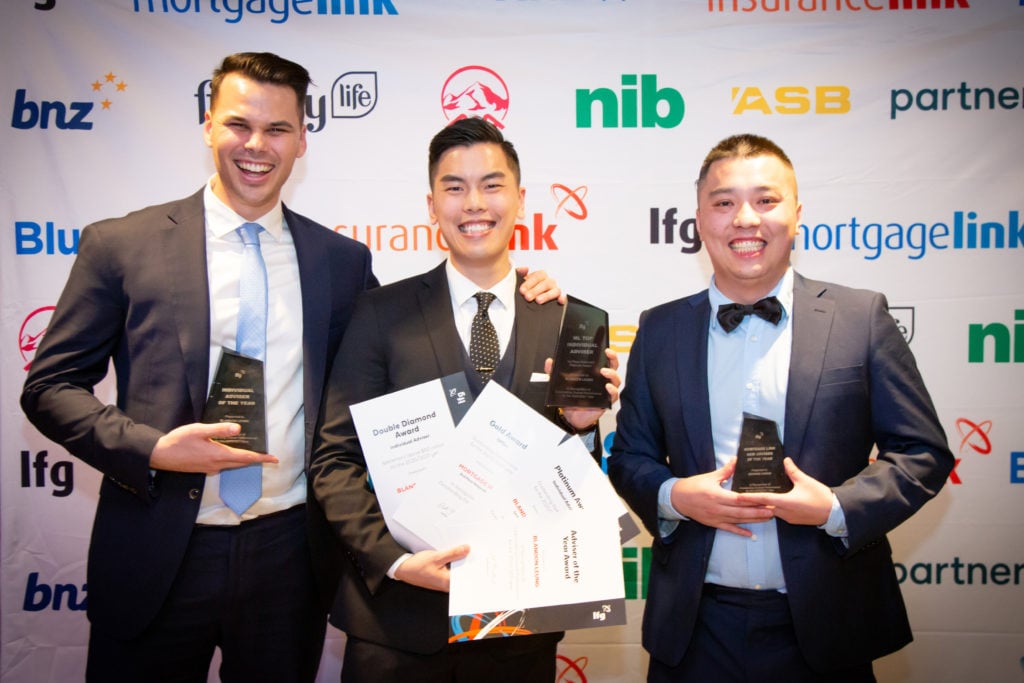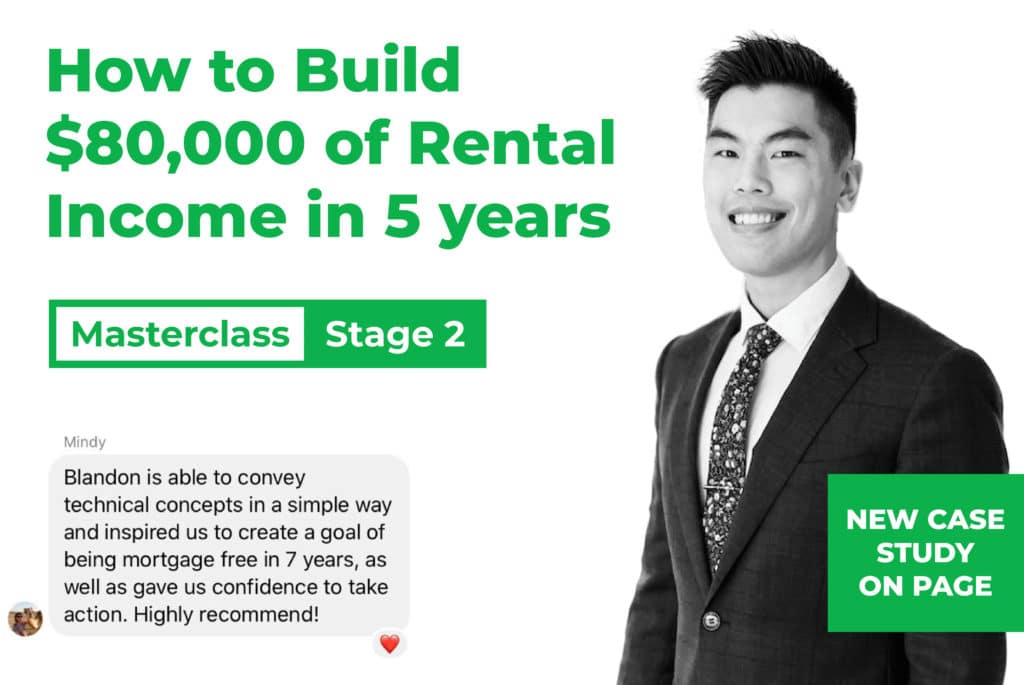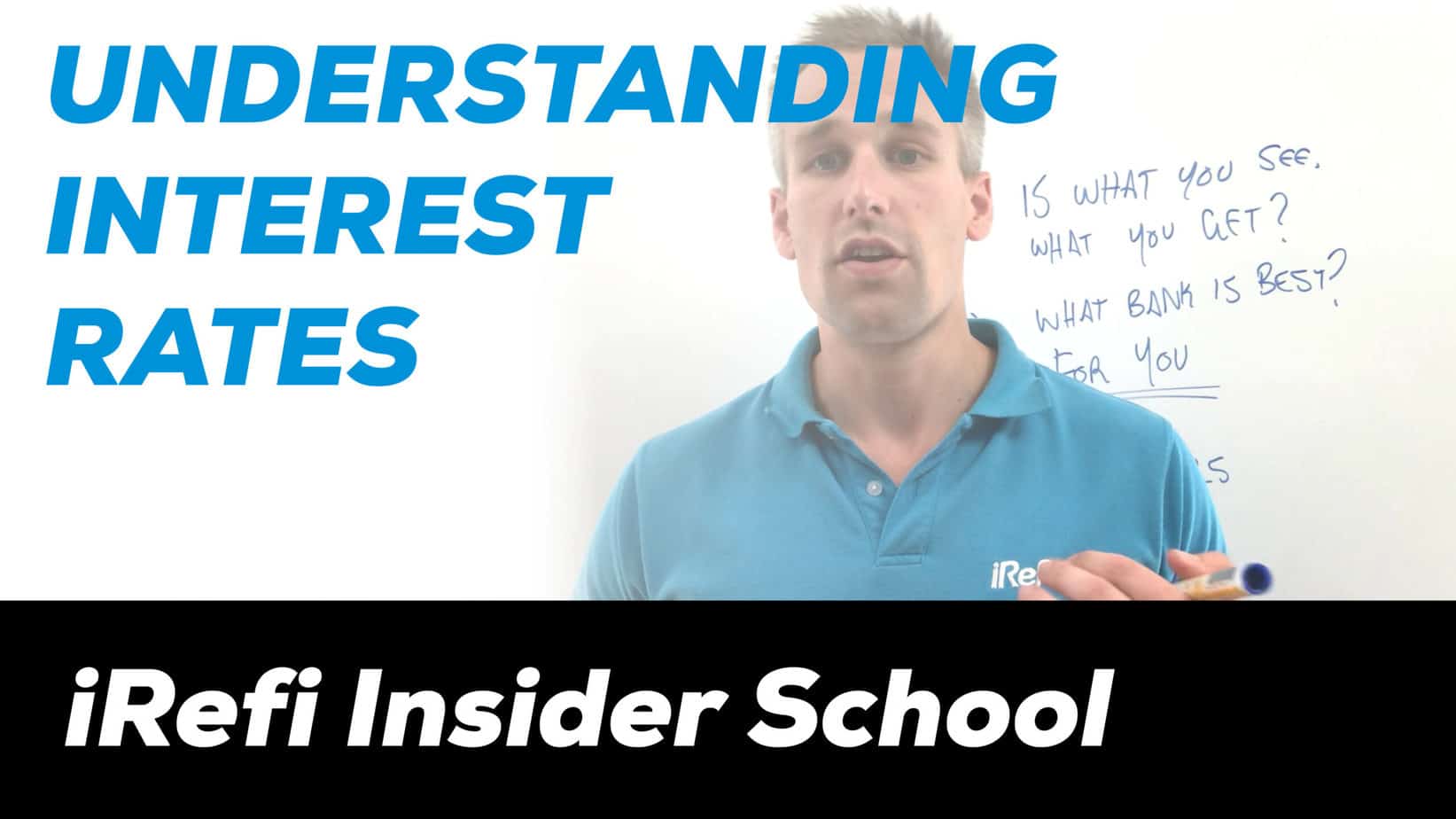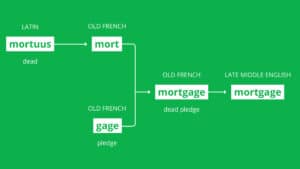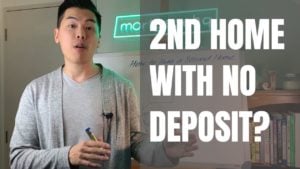The Mindset for Building an Investment Property Portfolio
Okay. So today we’re going to talk about what I think is the most important thing for successful property investing. So I probably have spoken to well over 1500 property investors in the last 3 years in detail, and the thing that I constantly pick up from the people that are doing quite well is that their mindset is just a little bit different from the people that are still struggling to figure out how to become a successful property investor.
So I would say that the key thing that I picked up is the people that are successful in investing are optimistic, and they’re realistic about what’s going on in the market. And people that are quite…they’re struggling a bit, they’re more pessimistic. They are thinking, “Oh, it’s a bad time to invest” or, “It’s a bad market.”
So what I would say is the thing to… It’s important to keep a positive growth mindset. So key concept from the book of the same name, Mindset, is that successful people tend to have positive growth mindsets, and people that are stuck in their ways, they’ve got what’s called “a fixed mindset.” And so if you are always thinking of, “Today is not a good day” or, “I’m always going to struggle” or “I can’t find good deals” or, “I’m scared I’m going to lose money,” then you’re going to tend to be a little bit more pessimistic about your options.
Your mindset is not going to be in the right state of mind to help you become a successful property investor. So making sure that you…if required setting some affirmations in place that will keep you in a positive state of mind and talking to real estate investors that are constantly taking action will help push you in the direction of taking more action when it comes to property investing.
A thing that I see quite a bit is there’s a lot of want to be investors out there. And so, what I mean by want to be investor is, these are people that don’t have equity, they have no cash, they’re not looking at listings, they’re not taking any action. But it’s also people that have a lot of equity, they might have very strong incomes, and they get into this comfortable lifestyle, they might talk about property investing a lot, but they’re not taking any action.
If you haven’t bought property in the last few years, and you don’t have more than two or three properties, you actually are probably falling into what I would call “The want to be property investor category.” So you got to dedicate time to property investing. You’re not going to magically find that million dollar property that’s selling for 800K that you can buy, spend, you know, $20, $30 grand on renovations, and get a valuation after those renovations at $1.2.
So those properties are not just going to fall in your lap unless you’re constantly looking at realestate.co.nz, or Trade Me, and you’ve got all of the listings hitting your inbox regularly, and you’re taking action, and looking at them. You know, you really got to see time as your main asset, your most valuable asset, and so how you spend your free time. Do you come home, watch the news?
Do you watch Netflix? Do you, you know, read novels instead of spending time educating yourself on property investing? Any minute that you spend as your leisure time is costing you money whether you realize it or not. So when you’re watching that show on Netflix, you think, “Oh, it’s only15 bucks a month doesn’t cost me much money.”
But actually, it is costing you money because it’s opportunity cost that you could be finding more properties selling at a discount. And then, you know, if you’ve got that mindset that there’s always deals in any market, you will find them. So even when, you know, at the moment local markets are a bit flat, and people think, “Oh, it might not be a good time to buy. It might be a crash.”
Like, there are properties that are a million dollar property selling for, you know, $750. We see it. There’s property investors picking up deals every day of the week, they’re taking action, and they’re looking at lots of listings. You know, you don’t have to be buying these properties in Auckland. You can look in the smaller regional towns.
If you check out Graeme Fowler’s book, 20 Properties in a Year, he bought properties at…what was it? An average of over $23 grand discount on market valuation on the day he bought it. So if you buy five 150k properties in a year that are all discounted, and you made 100k of equity, you’re not going to do that if you’re watching Netflix instead of looking at listings, and shopping around for property.
And you won’t have the confidence to do it unless you’ve got the positive growth mindset that, “Hey, I don’t know enough about property investing just yet. I’m going to educate myself to get into that place where I’m confident to take action.” So a couple of rules that you see below in the blog that I picked up from a great book called The E-Myth.
It’s definitely worth checking out. There’s actually an E-Myth specifically written for property investors. There’s a whole series of books. So a couple of the rules that I, kind of, try to add to my life is to associate…
The first rule: associate massive pain with bad habits. So bad habits might be hitting snooze twice in the morning. You lose 15 minutes each day, that’s quite easily an hour, maybe even close to two hours a week. That’s time that you could get up in the morning, check your automated emails from Trade Me and realestate.co.nz or potentially analyze one or two deals a week…a day, sorry.
Instead of hitting snooze twice a day, you’re analyzing 10 to 20 property investment potential deals each week. And the more deals you look at, the more confident you’ll get when you find a good deal, and the more likely you are if you look at 100 deals in a month to make an offer on at least one.
And if you can pick up properties at a good discount even if you’re offering something ridiculous, like, say, $650 on a 900K property, sometimes those deals are going to stick. So the number two rule from this E-Myth book was to check your ego. So nobody knows everything about property investing. Nobody can possibly understand all of the different markets.
You’ve got to talk to experts. You’ve got to… And it’s really hard to do. Have the self-awareness to understand where your weaknesses are. So for me, the techs and accounting side of things, I got a pretty good understanding of how it works, but I would never ever do the numbers myself. I always get an outside person to help me out and, you know, I’m also aware that it’s not where my time is best spent.
I wouldn’t walk around saying, “I understand the legals, I understand the numbers,” and in the same respect I would hope that property investors see that they shouldn’t be doing everything. You know, in some cases you shouldn’t be managing your own properties. You shouldn’t be brokering your own deals with the bank. You should be spending time on finding a good property deals, and sometimes you really got to check your ego on that side of things.
You’ve been doing a lot of it yourself, and you might think that you can do a good job. And even if somebody can do, you know, almost as good a job as you, it’s better to spend your time on things you enjoy, on things that are going to help you make money. Rule number three is to really value education. You really should never stop learning. Warren Buffet has that famous quote, “The more you learn the more you earn.”
And about 10 years ago I started reading, you know, at least two or three books a month, and it really has made a big difference to the way that I see the world, and how I make money. And I can see that when the guys at mortgagehq start reading more books more consistently, they start bringing those ideas into the way that they act each day, and it’s different. No harm in being a bit more knowledgeable, having more words in your vocabulary, and then seeing points of view where, let’s say somebody who spends 10 or 20 years learning lessons, property investment lessons even.
And they can dense those lesson into a book that might take two or three hours to read, I think that’s going to help you, you know, people making lots and lots of mistakes and they share those mistakes. People who are having big successes and sharing those successes. And, you know, education is not just books, it’s YouTube videos, it’s podcasts. One podcast I do suggest is the BiggerPockets podcast. You can go to biggerpockets.com the American-based property investment website.
Obviously there is American-based lessons but about 80% of what they talk about and preach does apply. And building on that, the next rule is to build for the long-term. So property investors that we see making the biggest mistakes are people that are, you know, inexperienced property flippers, inexperienced renovators, people that are trying to rush their wealth-building.
The most successful investors that I’ve seen and worked with have been people that are focused on the long-term, you know, 10, 20, 30 even 40-plus year mindset. Some of our clients have 30-plus properties in their portfolio. Some property portfolios are worth $20, $30, $40 million and I can tell that over time these people have bought well and been patient.
And generally speaking, well, we don’t have time to cover it right now, but a buy and hold strategy, if you buy well it’s going to have the best returns over the long-term. You know, you don’t have to pay agent’s fees because you’re not selling properties, you’re not paying tax. So, you know, check out Property 101 and read what Mick Gilligan has to say about holding property long-term.
And that also touches on that whole Netflix mentality, again, you know, and the snooze button. You know, every day you can hit snooze. That’s a short-term mentality. It buys you a couple extra minutes of not very good sleep, and watching Netflix at night, you know, gives you a good break, but there’s no compounded positive return from that. What does get your a positive compounded return is looking at those Trade Me listings, making offers, reading blogs, or watching videos about property investing.
That knowledge base is going to build up, and you’re going to become a better property investor. Having goals in place is really important and a bit self-accountability. If you’re not setting goals then odds are you probably… If you don’t know where you’re going, you’re going to get there. So if you don’t sit down every couple of weeks or every couple of months, and just say, “Hey, these are my goals for the week or the year,” it’s very unlikely that you’re going to accumulate a big portfolio if you’re not thinking about it often.
So set some goals even if it’s something as simple as 10 properties in 10 yeas, or 3 properties in 20 years. Now write that goal down, review it often and, you know, little bites of the apple are going to get you closer to having things finished off. So it’s okay to have those big goals, but you will not hit them unless you’re constantly progressing towards them.
You got to know what your “Why” is. So the reason I want to accumulate wealth is I’d like to give a lot of money back to charity. I’d like my family to be well off. You know, I’ve got one little girl at the moment. I’d like to have a big family and I’d like us to not have to worry about money. And so business is the way that I’m focusing on at the moment.
Growing the business, I can grow a lot of passive income, and I’m also mindful of the property investing as well. I want to accumulate assets, accumulate cash flow. And so I don’t have to be at work all day, every day especially as my kids grow a bit older, and there’s a few more of them. I want to be around. So I know what my “Why” is. It’s really strong. I review it daily.
If you don’t know why you’re trying to accumulate wealth, it’s very unlikely you’re going to get there. So whether it’s the church, or a charity, or family, or… you really got to understand why you’re trying to set up yourself to have passive income from property. Keep that in front of mind when you’re thinking, “Should I hit snooze? or should I get up and look at those listings?”
And that brings us to having no regrets. You know, you don’t want to get to 50, or 60, or 70 and have regrets that…instead of getting up in the morning and looking at those listings, you were just snoozing your way through life. And as a metaphor, and in the literal sense, a lot of people are just snoozing their way through life, and you don’t want to be one of those people.
So have the mindset, get up a little bit early. Everybody’s got that time, the last 10, 15 minutes of your sleep is probably not deep sleep. You can afford to get up a little bit earlier. You’ve got to have a culture of personal development in your mind. So hang out with other people that want to be better people, that want to learn more, that want to understand property more.
Like, if you’re going into the pub like a couple times a week and nobody cares about building their wealth, if you’re, you know, you’re watching the cricket on Saturday instead of doing a little bit of extra work, and you just hanging out with the lads, or if you’re not hanging out with people that want to build wealth, then it’s very unlikely that you’re going to get there.
So you’ve got to associate yourself with a friends group. You don’t have to leave those friends behind. You just need to have friends and mentors that are wealth-building focused, and that is going to rub off on you. And that brings to, like, finding a coach. So you don’t have to have a paid coach. Mortgage advisors at mortgagehq are actually free. We were going, “Property investors all day, every day.”
But you don’t have to work with us, you can work with any mortgage broker or property coach even if you need to find one that’s paid. But if you have a coach, you know, even the All Blacks the best rugby team in the world, they have coaches. Even, you know, Roger Federer, you know, best…one of the best tennis players in the world, most of the time he has a coach. You know, so if you want to become better, or you want to become the best, odds are over that…some of that time you’re going to need a coach.
And you can treat books written by successful people, whereas mentors, as coaches you don’t actually have to meet them. Quite often what you’ll find is people will write books summarizing all of their knowledge, and that’s essentially, how they would coach you. So don’t be thinking you need to see people face-to-face, have a coffee, say, “How are you?” You can actually, cut straight to the chase, and get all the good bits just by picking up a book.
A couple of books you might want to check out if you’re unsure about how to keep your mindset in a positive growth frame of mind is check out The Winner’s Bible, it’s a Kiwi guy that wrote that book. Check out Property 101. Reading about successful property deals is going to excite you. Jump on the Facebook page of Property Investors Chat Group NZ, and don’t be afraid to go to a couple of property association meetings.
And there’s heaps of free seminars offered by accountants, and mortgage advisors, and property developers. You don’t have to pay, you don’t have to sign up, you can go, you can learn, and then you can reflect afterwards. And, yeah, the trick is to figure out what your borrowing power is, start looking at deals. If you find a good deal, and there’s heaps of equity in it up front, you should be able to find somebody to help you lend that money even if it’s private investment.
And if you don’t have any money, or enough money, what you really got to do is have the education so that people believe you, and they’ll be happy to invest with you.


